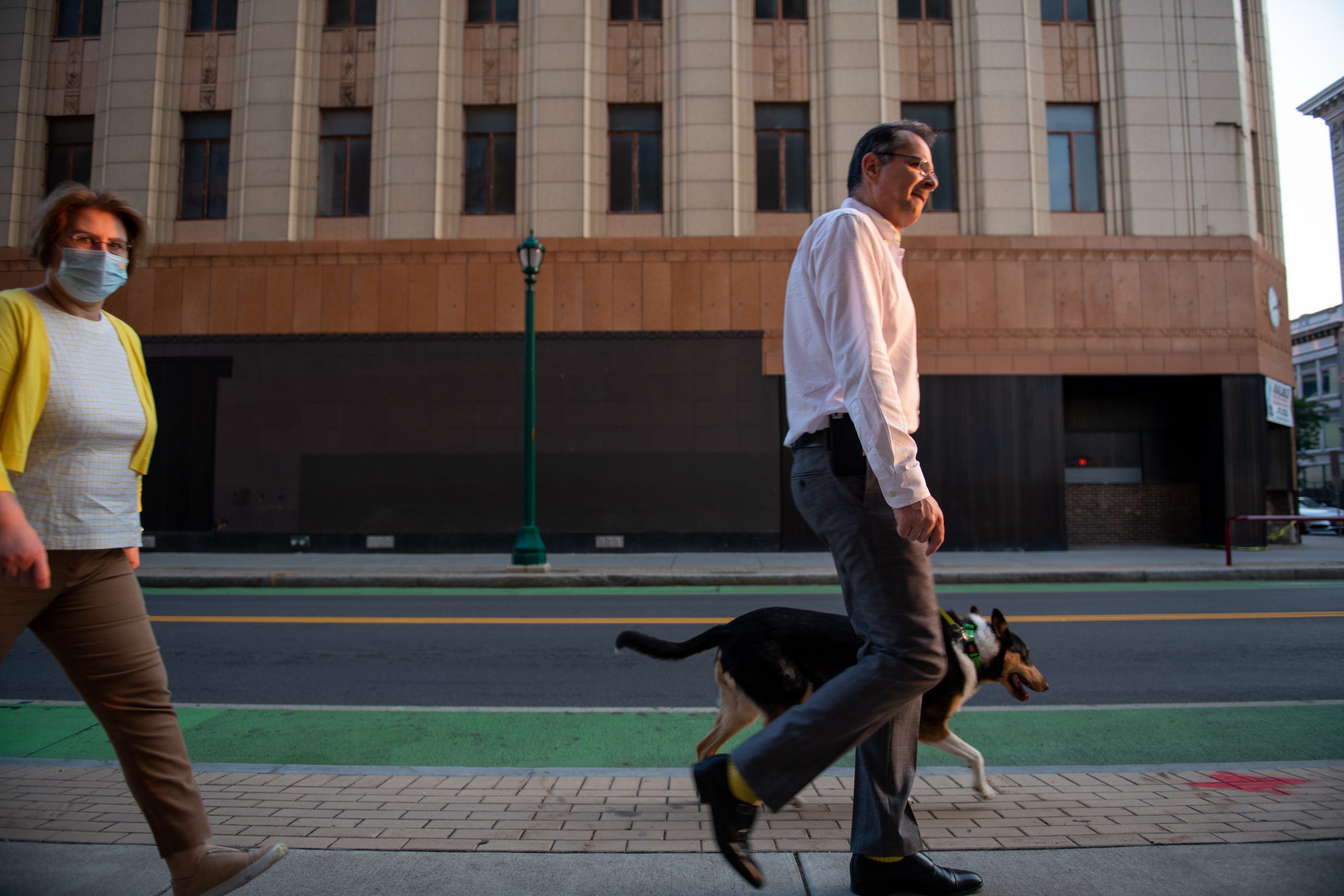SEARCHING FOR NORMAL

A global pandemic alters how people continue mundane and everyday life
The leaves begin to fall to the cold, November ground and serve as a reminder that winter is approaching yet again; seven months and almost a full set of seasons have come and gone, but the pandemic remains. When homebound people do venture outside, they contend with their own hot breath and restricting masks; instead of friendly smiles, they encounter squinting eyes; they confront plexiglass walls at grocery stores, restaurants and drive-thrus. This is life in the new normal.
While some people attempt to find some normalcy in the uncertainty, others remain hidden away, protecting themselves and others from the risk of exposure.
“I’m still the crazy friend who refuses to go out anywhere,” said Joey DiStefano, a student and teacher’s aide at Syracuse University. “I’m realizing one of my greatest fears is hurting people, so the thought of spreading a plague is just unimaginable.”
DiStefano follows three steps for staying safe. He always wears a mask, even if it is outside or when visiting a friend’s home. He always accepts hand sanitizer when it’s offered. He doesn’t go out to restaurants or businesses unless he must.
Jon Page, on the other hand, opened a bar in the middle of the pandemic, four months after his original plan.
“At first I quarantined for two months in my apartment,” said Page in a Facebook interview. “I did avoid crowds and ordered a lot of food to go. But after 4 months of not operating and still paying rent, my business needed to open to bring in revenue, or else it would have failed, and I would have failed.”
Page opened Three Lives despite state social distancing measures limiting him to a 25% operating capacity, while Shannon Wilde also experienced a life-changing event when she moved from Florida to New York to live with her formerly long-distance partner Jenny Mullinax.
“Before our move, my girlfriend was stationed in Japan while I was in Florida, and the only time we got to see each other was over Skype. Now we are with each other 24/7,” said Wilde while smiling and looking toward her partner. “It definitely accelerated our relationship, but in a really great way. If we had any differences in living together early on, we worked through them very quickly. While it has helped me strengthen my current relationship, it has hurt my ability to make new ones.”
Wilde had plans to start a book club and meet new people while her girlfriend was going through the advanced military photojournalism program at The S.I. Newhouse School of Public Communications, but the nature of the pandemic has made some people reluctant to meet new people face-to-face, a luxury now reserved for friends and family.
According to Katerra Davis, a licensed marriage and family therapist in Victorville, California, the inability to form new relationships during lockdown has had a massive impact on mental health. Davis quit her former job providing therapy to a homeless community in order to work at her private practice full-time. In March, she had approximately 14 clients a week and now has 38 plus a waiting list, with many of her clients experiencing more significant mental health issues related to the pandemic.
“The biggest thing right now is depression and anxiety,” said Davis. “The problem was there before, but the depression was a little bit more manageable. Now with COVID isolations, the lack of socialization, and limited self-care and being able to go out, I think it has increased feelings of isolation.”
